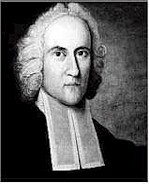I'm reading a book right now that is arguing that Western Christianity has largely ignored a major component of God's plan of salvation. Anne Hunt believes that old and new developments in our culture ignore the resurrection in God's plan of salvation because of the overshadowing fixation on the cross.
Tertullian, Anselm, Luther, and Mel Gibson all represent this western cultural interest in the passion of Christ that tends toward a legal understanding of salvation. A legal understanding of salvation is usually explained through an analogy to a courtroom, in which the Father as judge demands righteousness from us. Since we cannot provide that righteousness, we deserve death. The Son then steps in and substitutionally satisfies the punishment that we deserve.
While I disagree with none of this (except to say that an analogy can only impartially reflect truth), I do think it is inadequate for three reasons: the absence of the Holy Spirit, the lack of actual change in human hearts, and the past-oriented spirituality which results. I believe that to bring the resurrection up alongside the passion will help Christians grasp the larger picture that is sometime lost.
First, the absence of the Holy Spirit. If we are to call ourselves trinitarians, then our theology should reflect that in every way. Especially in the plan of salvation. The courtroom analogy leaves little room for reference to the Counselor. But biblicaly, the Holy Spirit has a prominent role in the plan of salvation. Christ says that he must go so that the Spirit can come.
Which leads me to the second point. Salvation is the process where by God's grace we enter into his life and become partakers in his nature and he indwells in us. This is not very prominent in the Western church. But Christ did not die so that sins would be absolved, he died so that the Sanctifyer could come, so the veil would be shredded and that true communion with God would be established. This is what heaven will be. This does not happen without change in character. You do not come into contact with the Holy Ghost and walk away unchanged.
Third, spirituality that is inordinately focused on the passion of Christ looses it's eschatological flavor. What I mean is that we become so focused on the past that we loose track of it's implications it has for the present and the future. The resurrection is the guarrantee of new life for those in Christ for it demonstrates the plan of God to give us wholeness in his good time.
My own spirituality focuses so much on the passion that I ignore the resurrection. This book is pointing me into what I think is a more biblical and thus trinitarian understanding of salvation.
Sunday, March 20, 2005
Subscribe to:
Posts (Atom)
